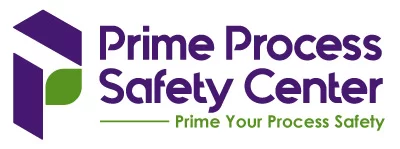
In the Petrochemical industry, process safety is paramount due to the risks associated with handling hazardous chemicals and hydrocarbons. It involves rigorous hazard identification and control measures to prevent incidents like fires, explosions, and toxic releases. Equipment integrity is a focus, with regular inspections and maintenance. Compliance with safety and environmental regulations is essential for maintaining trust and reputation. Training and fostering a safety culture are crucial, ensuring all employees are aware of potential hazards and emergency procedures. Continuous improvement is driven by technological advancements and incident learnings, ensuring long-term sustainability and safety in petrochemical operations.
The Petrochemical industry, with its complex processing of hydrocarbons and chemicals, faces significant hazards related to fire, explosion, and accidental releases.
These risks stem from the nature of the substances handled and the processes involved:
- Flammable and Volatile Chemicals: The handling and processing of flammable hydrocarbons, such as ethylene, propylene, and butane, pose significant fire and explosion risks. These chemicals can ignite if exposed to an ignition source or if there is a leak in the processing system.
- Chemical Reactivity Hazards: Petrochemical processes often involve reactive chemicals that can cause hazardous reactions if not properly controlled. Uncontrolled reactions can lead to explosions or the release of toxic gases.
- High-Pressure Operations: Many petrochemical processes operate under high pressure, increasing the risk of explosive ruptures or leaks if equipment fails.
- Combustible Dust: The production of certain chemicals can generate combustible dust, which, when suspended in the air and ignited, can lead to powerful explosions.
- Storage Tank Incidents: The storage of raw materials and finished products in large tanks can lead to fire and explosion hazards, especially if there is a failure in the tank or containment system.
- Equipment Failures and Malfunctions: Malfunctioning equipment, such as pumps, valves, and compressors, can lead to the accidental release of hazardous substances, potentially causing fires, explosions, or environmental contamination.
- Pipeline Leaks and Ruptures: The transportation of petrochemicals through pipelines poses a risk of leaks or ruptures, leading to fire hazards or environmental damage.
- Accidental Chemical Releases: Accidental spills or releases during handling and transportation can expose workers to toxic substances and pose fire and explosion risks.
To mitigate these hazards, the Petrochemical industry implements stringent safety measures, including regular equipment inspections, rigorous maintenance programs, comprehensive emergency response plans, effective containment systems, and continuous monitoring of operational conditions. Employee training in hazard recognition and response is also a crucial aspect of maintaining safety in this high-risk industry.
Why Work with Prime Process Safety Center
- Specialized Petrochemical Expertise: Our team has specialized knowledge and experience in the petrochemical industry, ensuring that our process safety solutions are tailored to address your specific challenges effectively.
- Comprehensive Risk Management Strategies: We develop and implement comprehensive risk management strategies that address the unique hazards of petrochemical processing, including flammable chemicals, high-pressure systems, and reactive materials.
- Regulatory Compliance Assurance: Our expertise in industry-specific regulations ensures that your operations comply with all relevant safety and environmental standards, reducing the risk of non-compliance penalties.
- Advanced Safety Technology Integration: We employ the latest safety technologies and best practices in process safety management to enhance the safety and efficiency of your operations.
- Customized Safety Protocol Development: Our approach includes developing customized safety protocols and emergency response plans specific to the operational complexities of the petrochemical industry.
- Proactive Hazard Identification: We focus on proactive measures for hazard identification and mitigation to prevent accidents and ensure uninterrupted operations.
- Employee Safety Training and Culture Building: Our comprehensive training programs are designed to equip your workforce with essential safety knowledge and foster a strong culture of safety within your organization.
- Operational Integrity and Efficiency: We balance operational efficiency with rigorous safety practices to ensure your business operates smoothly without compromising on safety.
- Continuous Support and Adaptability: We provide ongoing support and adapt our strategies to align with evolving industry challenges and advancements.
- Collaborative Problem-Solving Approach: We work closely with your team to understand your specific needs and seamlessly integrate our solutions for effective and cohesive management of process safety challenges.

